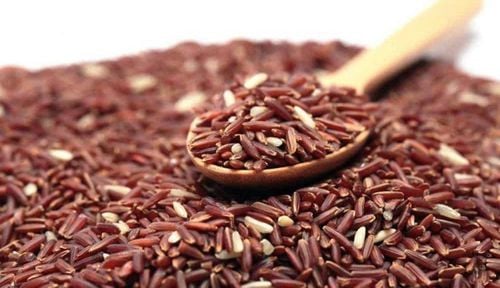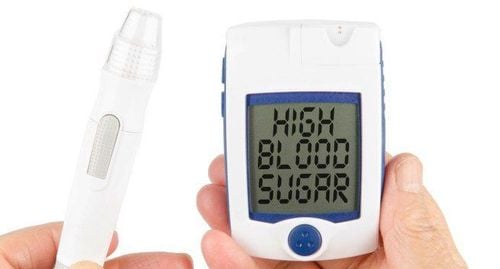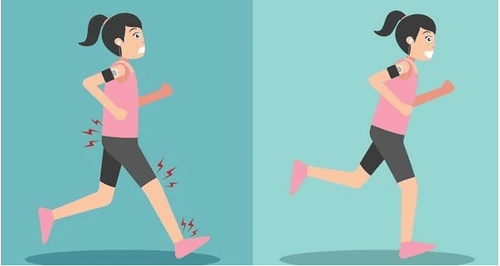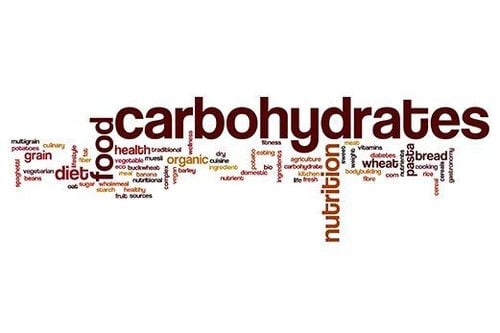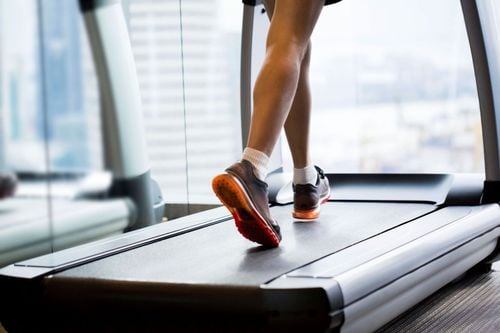This is an automatically translated article.
Diet and nutrition for running is not only important to maintain good health but also to promote peak performance. Proper nutrition and hydration can make or break an entire workout or race, while also affecting emotions, productivity, and thinking. One of the most common questions asked by new runners is what to eat and what runners should avoid.
1. Nutrition for jogging at what time?
Runners often worry that eating before running will lead to cramps or other gastrointestinal problems. But they also worry that if they don't get enough energy before running, they will easily feel weak, lethargic, hungry and fail to achieve their goals.
When you start running, you should not empty your stomach nor fill it up by eating too much. You don't want to eat right before running as it can lead to cramps or discomfort in the hip area. But running on an empty stomach can drain you of energy and leave you feeling very tired during the journey.
Finding the answer to the question of when to eat and what to eat for runners takes some time for every athlete to figure out. Research on optimal timing and food selection has yielded mixed results.
For example, in a published study investigating the timing of eating and exercising, the study authors suggested that consuming carbs within an hour of exercise might decrease performance compared to exercise. with carbohydrate consumption 2-3 hours before exercise. But they also note that other studies show performance benefits.
Another study suggests that it is generally recommended to consume a high-carbohydrate snack or meal 1-4 hours before more intense exercise of longer duration. But that study also shows that what you eat before exercise depends on what you've consumed in your diet in the days leading up to exercise.
As a general rule, some running experts recommend eating a snack about an hour and a half to two hours before you start running, or a snack 30 minutes to an hour before running. But you should experiment during practice and practice to see what works best for you.

Chế độ dinh dưỡng không đảm bảo sẽ dẫn đến chuột rút khi chạy bộ
In short, what should jogging eat?
Whole grains (bread, pasta, quinoa) Lean proteins (eggs, salmon) Fresh fruit (bananas, berries, oranges) Low-fat yogurt Peanut butter Almonds And runners should abstain from what?
Sugary drinks (especially soda) Spicy foods Fiber-rich vegetables (eg, broccoli) Lactose foods Legumes
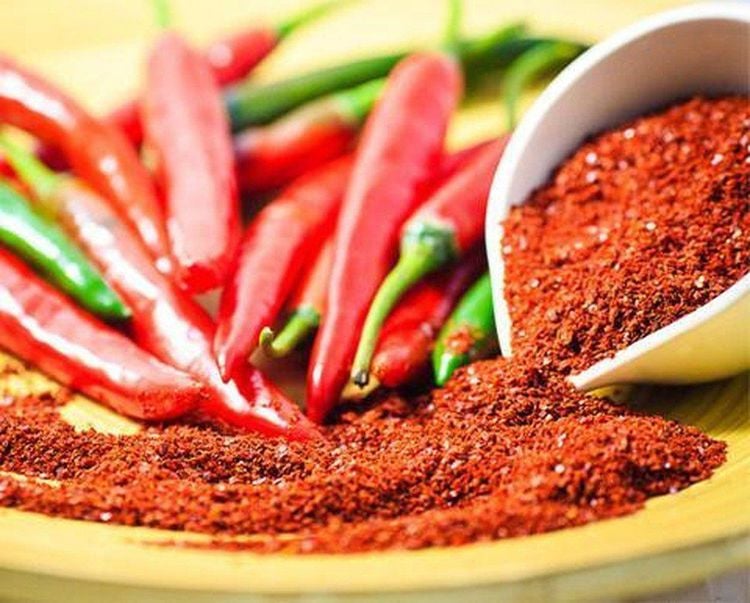
Người chạy bộ không nên ăn thực phẩm cay nóng
2. Nutrients for jogging
Eating right can help you get the energy you need during your run. A balanced diet for healthy runners should include the following essentials: carbohydrates, proteins, fats, vitamins and minerals.
2.1. Carbohydrates
Without a doubt, carbs are the best source of energy for athletes. For most runners, carbohydrates should make up about 60% to 65% of total calories. However, some runners (such as sprinters) may need more than 70% and some endurance runners may need as little as 50%.
Research has shown that for a quick and long-lasting source of energy, supplementing your diet with more carbs is more effective than protein or fat. Carbohydrate-rich foods include:
Fruits Potatoes Starchy vegetables White rice Whole grain bread Whole-grain pasta Whole grain foods are less processed, which means they retain more of their nutrients. more nourishing. For example, choosing whole-grain pasta over white will give you more nutrients, including B vitamins (niacin, thiamine, folate), fiber, zinc, iron, magnesium, and manganese. Whole grains also contain fiber that can help you feel full for longer.
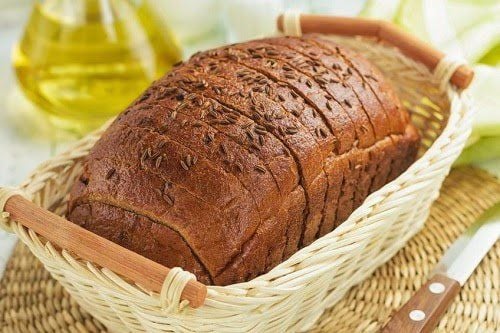
Bánh mì nguyên hạt được khuyên sử dụng tiêu thụ cho người chạy bộ
2.2. Protein
Protein is used to provide a part of energy and repair tissue damaged during exercise. Besides being an essential nutrient, protein helps you feel fuller for longer, which really helps if you're trying to lose weight.
According to USDA guidelines, protein should make up about 10% to 35% of daily calories. But physiologists often use a weight-based formula to determine a more precise amount.
Endurance athletes need more protein than sedentary people. Runners, especially long-distance runners, should consume 1.2–1.4 grams of protein per kilogram of body weight per day. Try to focus on low fat and cholesterol protein sources such as:
Beans Caviar Poultry Lean meat Low fat dairy products Grains One egg provides about 12.6% of your daily protein needs and the amino acids in eggs will help with muscle repair and recovery. Eating two eggs a day provides about 10% to 30% of the vitamin needs for humans, with the exception of vitamin C.
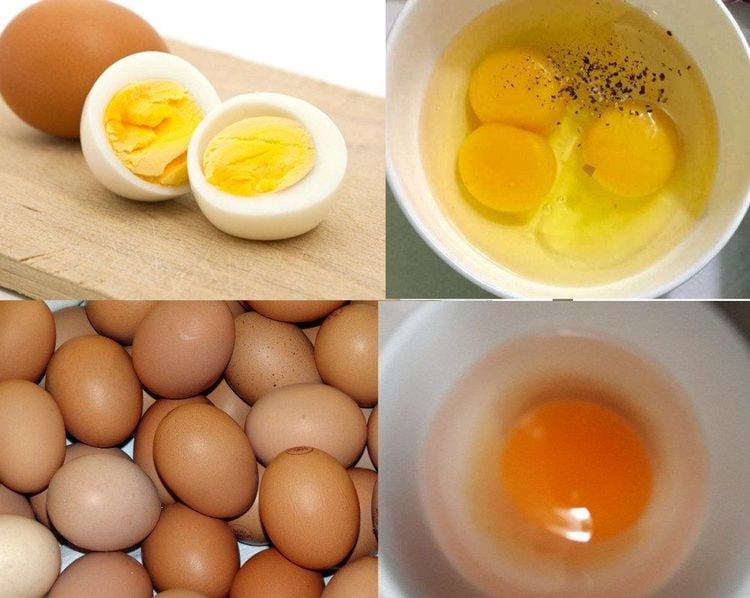
Chất đạm trong trứng giúp bổ sung năng lượng cần thiết cho cơ thể
2.3. Fat
High-fat diets can quickly cause the body to gain weight, so try to make sure that fat makes up no more than 20% to 35% of the total diet. 8 Eat foods low in saturated fat and cholesterol.
Foods like nuts, oils and cold water fish provide essential fats called omega-3s, which are important for good health and may help prevent a number of diseases. The National Institutes of Health recommends about 500 mg to 1,600 mg of omega-3 fatty acids, with adult women over the age of 18 recommended getting 1,100 mg and adult men over the age of 18 recommended. 1,600 mg.
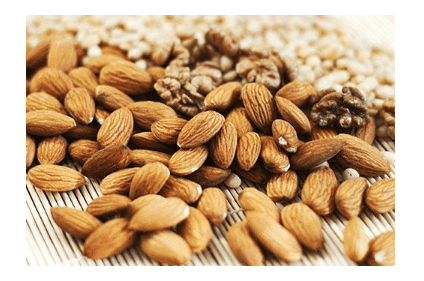
Các loại hạt giúp bổ sung omega 3 tốt cho sức khỏe
2.4. Vitamins and minerals
Runners don't get their energy from vitamins, but they're still an important part of their diet. Exercise can produce compounds called free radicals, which can damage cells, and vitamins C and E can neutralize these substances. Minerals, on the other hand, are especially important when running. Important minerals include:
Calcium: A diet rich in calcium is essential for runners to prevent osteoporosis and fractures caused by intense training. Good sources of calcium include low-fat dairy products, calcium-fortified juices, dark leafy vegetables, beans and eggs. Guidelines for calcium supplements still vary. Most adults aged 19–50 should aim for 1,000mg/day. Women over 50 need 1,200 mg/day. Young runners 9-18 years old need 1,300 mg/day. Iron: You need this nutrient to deliver oxygen to your cells. If you have an iron-deficient diet, you will feel weak and tired, especially when you run. Men aged 19-50 should consume 8 mg of iron per day, while women of the same age should consume 18 mg. Good natural sources of iron include lean meats, green leafy vegetables, nuts, shrimp and scallops. Sodium and other electrolytes: Small amounts of sodium and other electrolytes are lost through sweat during exercise. Usually, electrolytes are replaced if you follow a balanced diet. But if you find yourself craving salty foods, it could be your body's way of telling you to take in more sodium. Try drinking a sports drink or eating some pre-workout cookies. Especially if you run longer than 90 minutes, you should replace some of the electrolytes you lose through sweat by drinking sports drinks or taking a salt supplement while running. Runners who regularly exercise need to consider a reasonable diet to ensure health. Besides, it is also necessary to abstain from certain foods as recommended.
Please dial HOTLINE for more information or register for an appointment HERE. Download MyVinmec app to make appointments faster and to manage your bookings easily.
Reference source: .runnersworld.com





